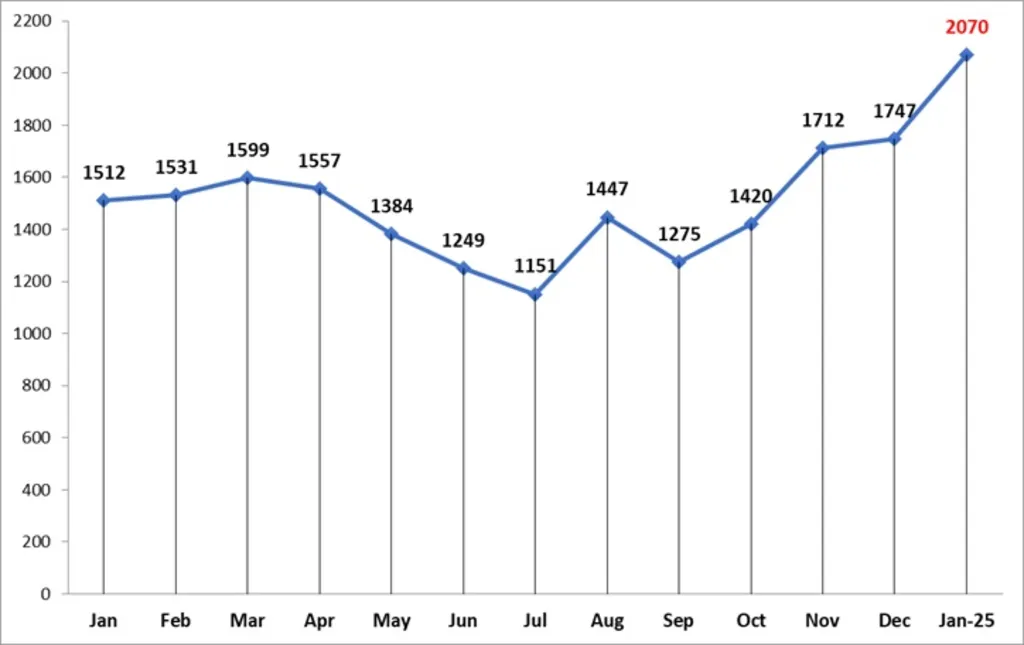After the halt during the pandemic, Vietnam’s tourism sector is not just bouncing back but evolving. In Q2 2025, the country welcomed 7.9 million international tourists, a 24.3% jump from the previous year. With improved flight connectivity and relaxed visa rules, tourism is booming again. But this time, travelers aren’t just coming for beaches and temples—they’re seeking eco-conscious, immersive experiences, driving the rise of Vietnam tourism eco‑trends.
This is the trend where sustainable travel is no longer a niche but a growing priority. The industry is expected to generate USD 25.7 billion in 2025, and grow at a 12.1% CAGR through 2035. We know that behind this growth is a clear change in traveler mindset, but what prompted it? To find the answer, let's take a closer look.

A New Type of Traveler
According to recent surveys, 77% of Vietnamese tourists now prioritize sustainability in their travel decisions—well above the Asian average of 68%. They’re choosing trips that do more than entertain. Travelers are foraging wild herbs with ethnic healers, staying in eco-lodges that support local artisans, and participating in coral reef rehabilitation dives.
These choices reflect a desire for low-impact, culturally rich experiences that benefit local communities and protect natural resources.
Vietnam Tourism Eco‑trends: Supporting Rural Economies
Eco-tourism isn’t just good for the environment—it’s revitalizing rural economies. Tourism currently supports over 3.1 million jobs in Vietnam, from food vendors and drivers to craft cooperatives and indigenous-run homestays.
Domestic travel, which makes up 64% of the market, is a key part of this shift. Travelers are exploring the Northern hill tribe regions, Central Highlands coffee farms, and Red River Delta cultural festivals, bringing income to areas often left behind by mainstream tourism.
Read Also: Hidden Advantages of Vietnam Modular Construction Techniques
Behavior Shifts That Matter
Eco-conscious behavior is gaining ground. In 2025, 21% of Vietnamese travelers chose certified sustainable accommodations, and 15% brought reusable items to reduce plastic use. Another 22% opted to travel in off-peak seasons, helping ease pressure on overcrowded destinations and minimizing their environmental footprint.
This shows that tourists aren’t just talking sustainability—they’re living it.
Read Also: Vietnam Sustainable Materials Usage for a Better Country
Digital Tools for Sustainable Travel
Vietnam’s eco-tourism wave is being amplified by innovative digital platforms that connect travelers with sustainable experiences. Apps like VGreen (developed by the Vietnam National Administration of Tourism) certify and promote eco-friendly hotels, tours, and restaurants, while Local Alike Vietnam partners with rural communities to offer immersive, tech-bookable homestays and cultural exchanges.
Corporate Support and Conservation Affect Vietnam Tourism Eco‑trends
Businesses are responding. Programs like Agoda’s Eco Deals, launched in 2025, offer 15% discounts at green-certified hotels and donate $1 per booking to conservation efforts. This includes funding for wildlife protection and ecosystem restoration across Vietnam and the region.
These initiatives connect travelers’ choices directly to tangible environmental benefits, building momentum for a tourism model that’s both profitable and responsible.
Read Also: Vietnam Green Building Certifications: Developers' Key to Sustainability
Vietnam Tourism Eco‑trends: A Greener Path Forward
Vietnam tourism eco‑trends represent a market shift, together with a deeper cultural change. As travelers seek meaning, authenticity, and impact, Vietnam is offering a blueprint for sustainable tourism growth. From preserving coral reefs to supporting tribal artisans, eco-tourism is proving that it can fuel economic development without sacrificing nature or heritage. With strong local support, conscious traveler behavior, and business-driven conservation efforts, Vietnam’s eco-tourism future is green, inclusive, and full of promise.






